Shark Education in Turks and Caicos
The goal of Sharks4Kids is to create the next generation of shark advocates through education, outreach, and adventure. While Project Lemon Aid is research-based, a large part involves community engagement and education. We first visited schools in Turks and Caicos in 2019 and the connections we made are what inspired the research aspect of the project.
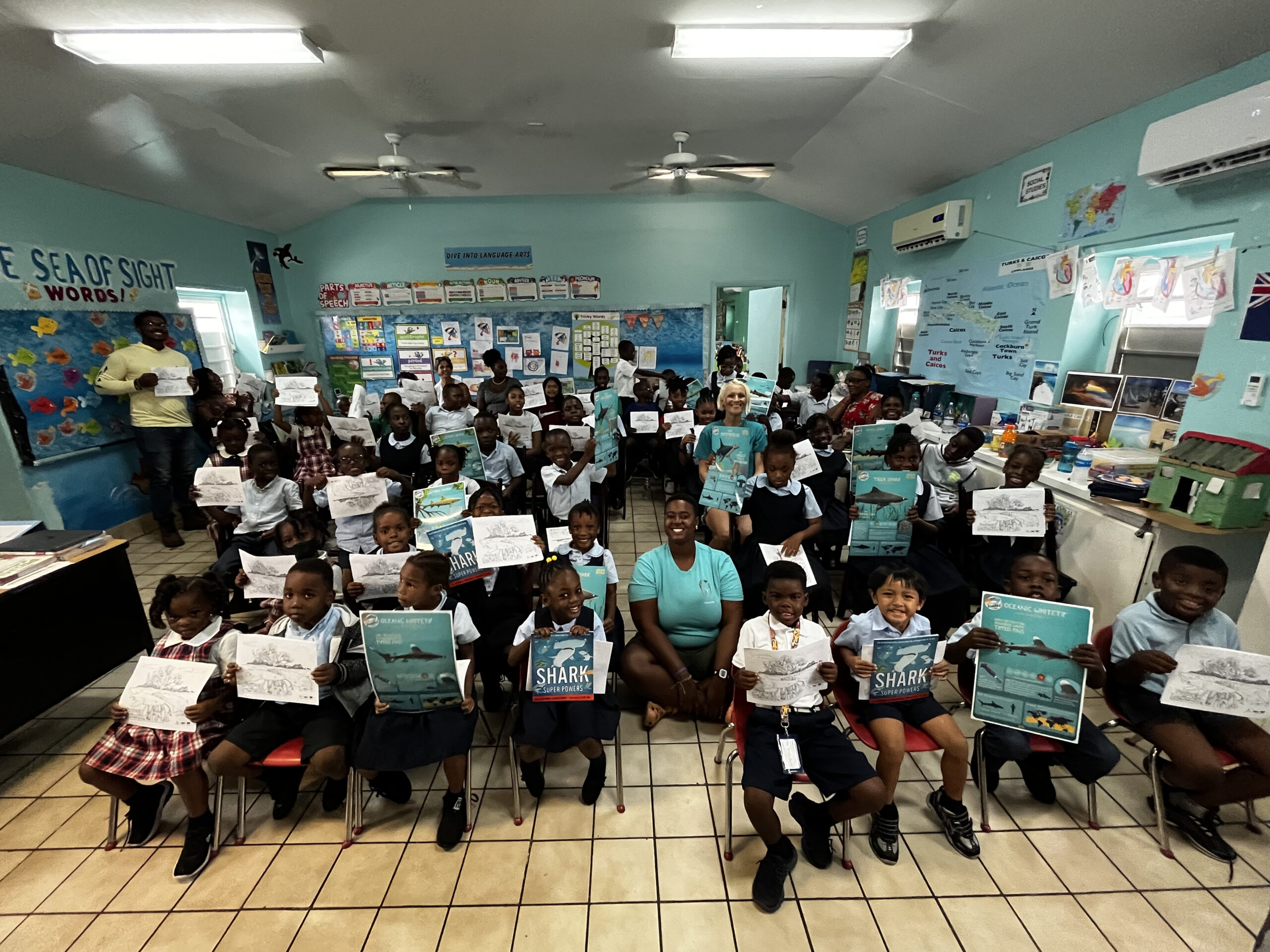
Jillian and Candace during a school visit in North Caicos. Photo © Duncan Brake
These connections have helped us build a network of collaboration and support, both of which are critical for conservation success and sustainability.
In 2023, we visited 18 schools and spoke to 1655 students aged 4-8 ( pre-K to grade 12). The schools were located in Providenciales, North Caicos, Middle Caicos, and Grand Turk. Travel to these schools included ferries and flights, which added to the adventure.
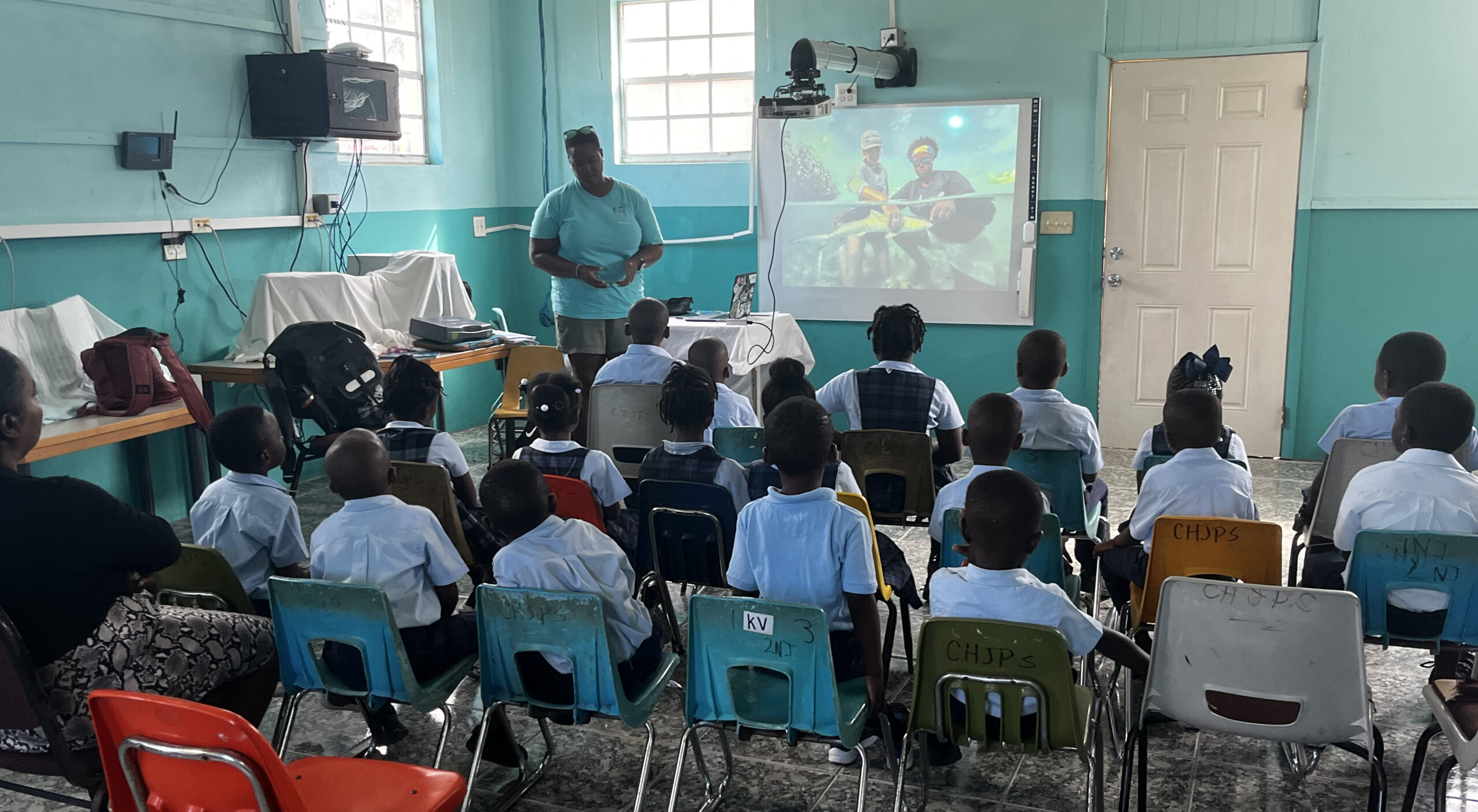
Candace teaching students in North Caicos about Project Lemon Aid. Photo © Duncan Brake
Our presentations provide students with a lot of general knowledge about sharks, but they also focus on local species and ecosystems. It has been amazing being able to bring our research into the classroom and show students what is happening in their own ‘backyard’. Even high school students, who are particularly hard to engage no matter where you are, take interest when they learn that we are studying sharks right in Turks and Caicos. They engage even more when we explain that we take students into the field to help us with the research. At this point, they find it harder to quiet their enthusiasm and their hands pop up with lots of questions. We are not just teaching them about sharks, we are providing opportunities to be part of something important. We are speaking to the future leaders of this project and helping students realize this project is for them.
My favourite visits were with the students in North and Middle Caicos. These small islands are quite remote and the schools are small. They face challenges with power outages and lack of internet, something I can relate to from calling a small island home. Students do not have regular guest speakers and they do not have access to the same opportunities kids on the larger islands have. Every presentation was filled with so much enthusiasm and the energy filled the room.
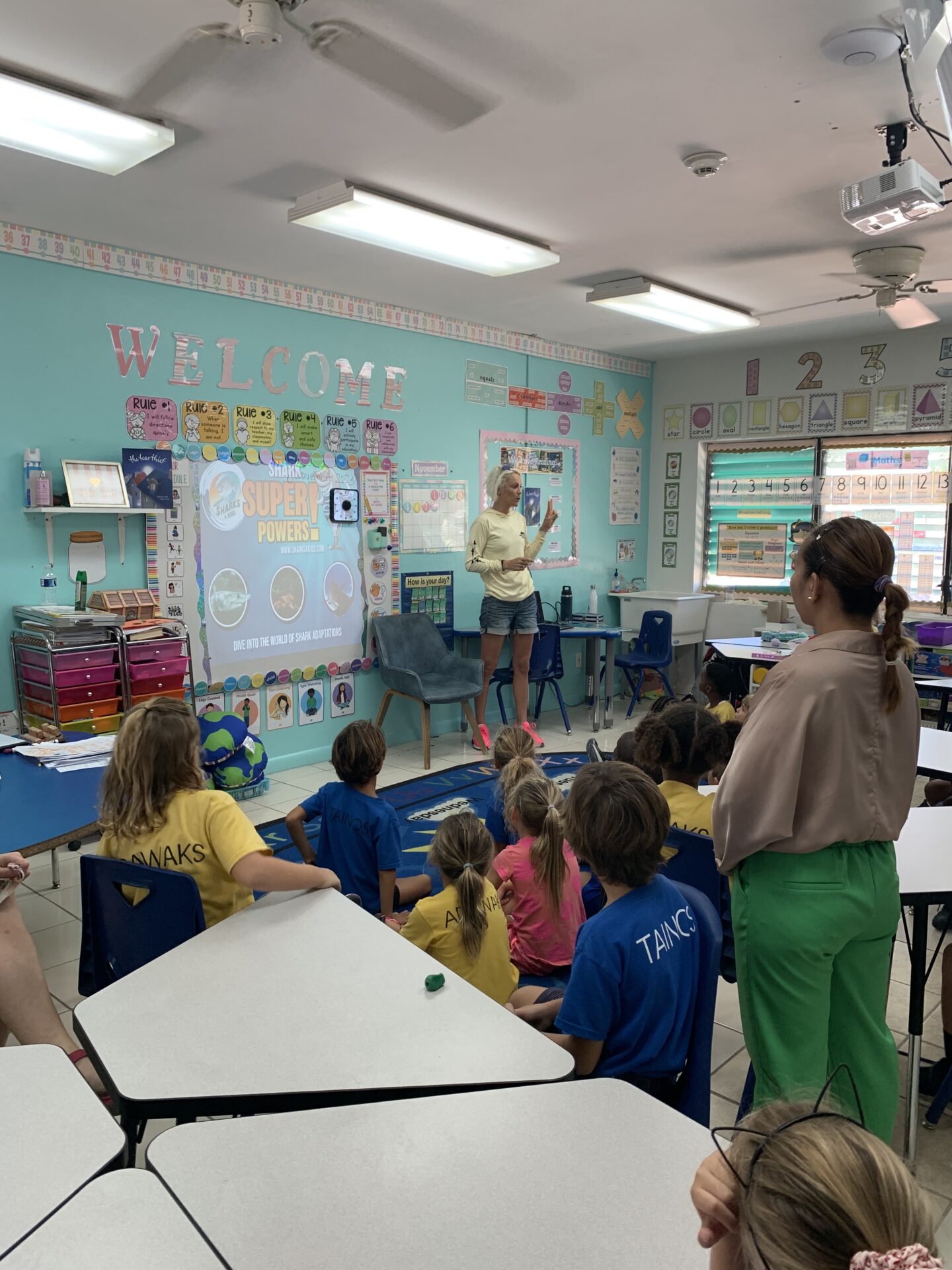
Jillian teaching students in Providenciales about shark adaptations. Photo © Michelle Jensen
We handed out lemon shark activity packets to a group as they were leaving and I have never seen students so excited. The teachers were also extremely thankful and excited for the resources. As we were finishing the next presentation, the principal brought the coloured pages back in to show us. The students had dived into the packets and furiously coloured their sharks. The principal wanted to make sure we got to see their work. If I ever lose hope in shark conservation and education work, it’s moments like this that remind me why this work is so important. It also shows how much of an impact we are making.
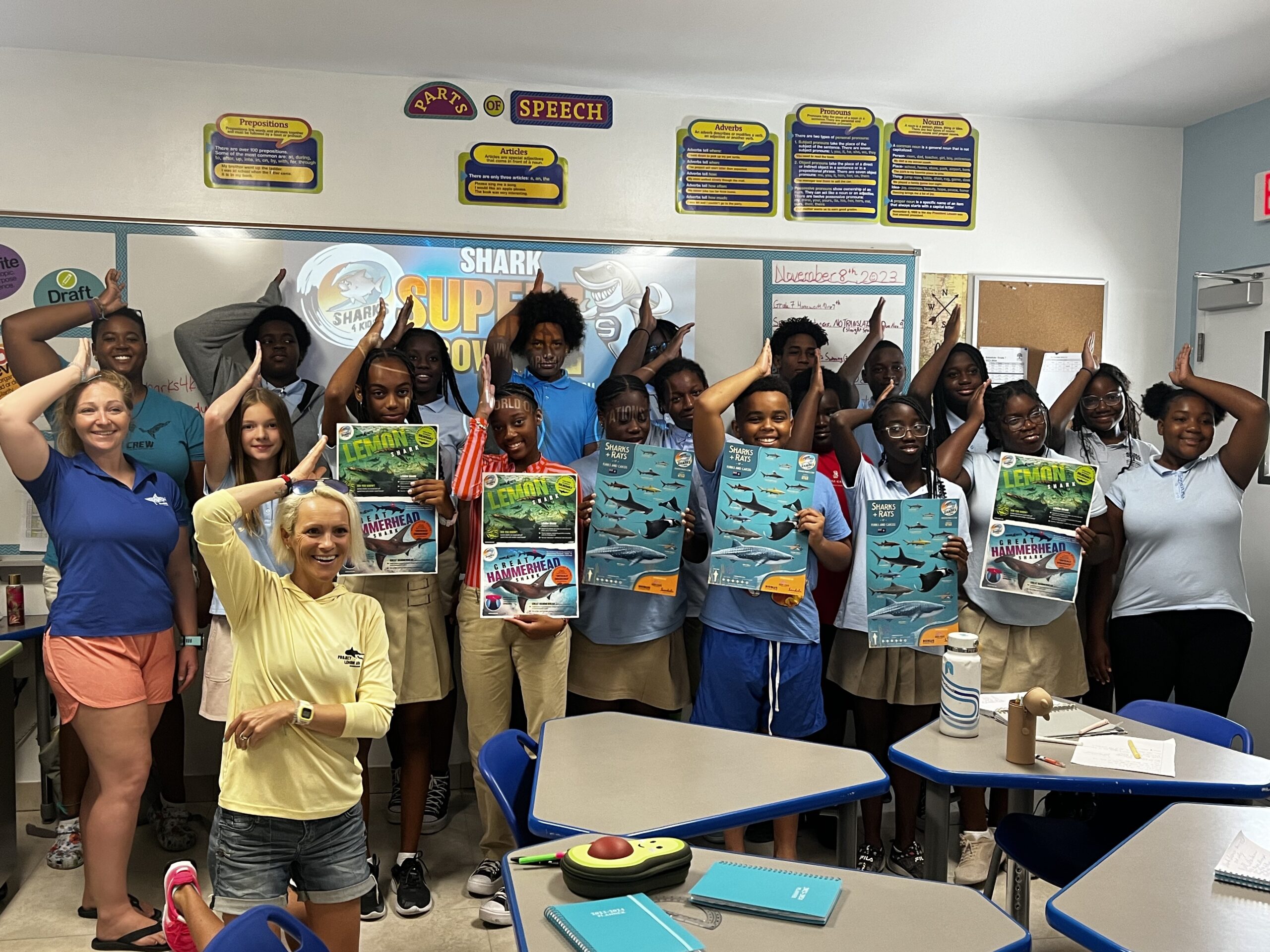
Candace, Jillian, and Michelle visiting students in Providenciales. Photo © International School Turks and Caicos
Another highlight was during a talk our team member Michelle did in Providenciales. The students were so excited with each video she shared. They even did a standing ovation for a white shark breaching video. I love seeing this level of excitement and it’s really special to be part of something that elicits this response.
Our local team member Arenthia has been doing school visits as well. It’s really important to get the local community involved and engaged in all aspects of the project. She is a former teacher and avid diver. She has joined us in the field, so gets to share her experience with the students. She is sharing her passion for the ocean with students and it’s been wonderful to see.
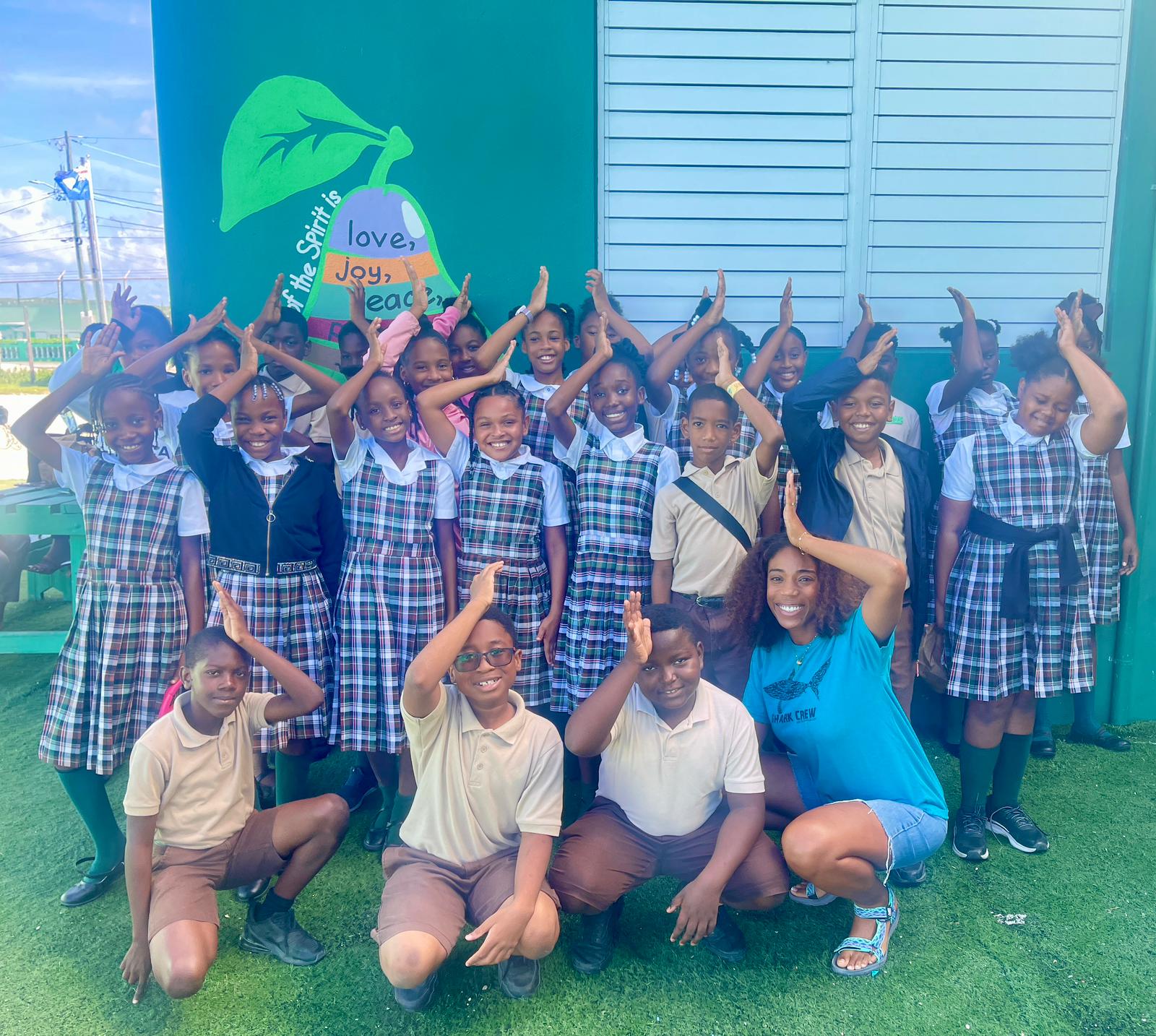
Local team member Arenthia with students in Grand Turk. Photo © Eliza Simons Primary
‘Exploring the outer island in the Turks and Caicos is an exhilarating journey filled with both adventure and educational discoveries. Teaching 4th, 5th, and 6th graders about sharks and their behaviour became a highlight of my year. The students’ countless intriguing questions not only enriched their knowledge but also deepened my understanding through the act of teaching. Witnessing their faces light up and the fear of sharks dissipate as I shared my experiences swimming with these magnificent creatures was truly indescribable. Being a brown woman who resembles and speaks like them, engaging with sharks in their native waters, serves as a powerful inspiration for the next generation of shark advocates.’
Shark bite incidents have happened around the islands and it’s critical to provide facts instead of feeding into the fear. Our presentations allow us to do that for not only the students but the educators. It’s great when teachers ask questions too. They are influential members of the community and we want to have these conversations with them. I’ve learned a lot about their experiences with sharks and their perceptions of them.
We’ve also been able to donate hundreds of 3D shark models, activity packets, and posters, all of which keep the shark conversations going. The activity packets were created specifically for this project and feature lemon sharks, mangroves, and our research. Kids can learn, colour, cut out sharks, and create pictures. The posters feature species found around Turks and Caicos and are laminated to make them more durable. 3D models are done to scale and something students can colour and then take home.
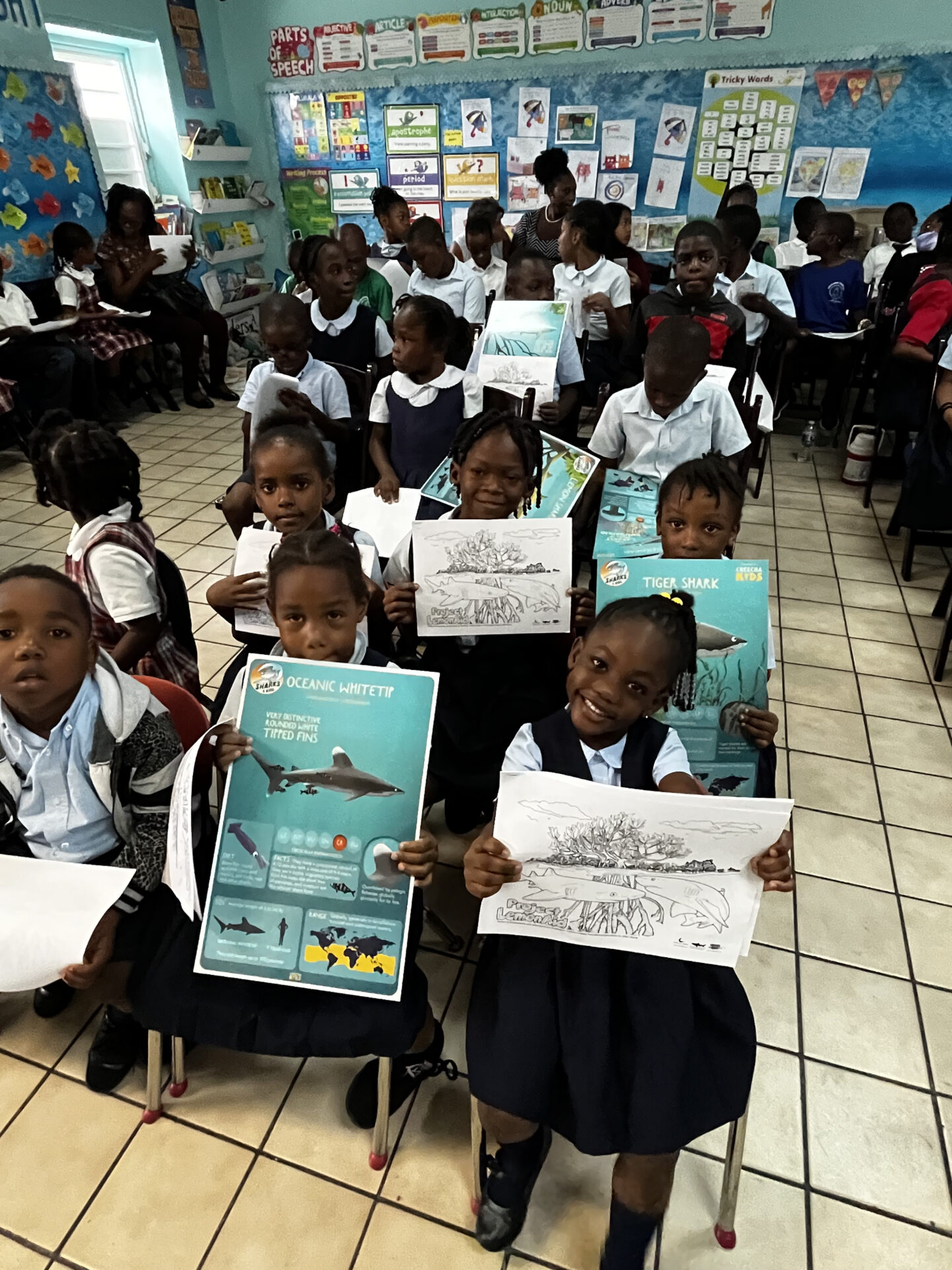
Posters and packets donated to students in North and Middle Caicos. Photo © Jillian Morris
We want to inspire curiosity. We want students to explore beyond what they’ve learned with us. We want them to ask questions. We want them to go home and share facts with or ask trivia questions to their families. We want them to continue the conversation long after we have left the classroom. These conversations might be small, but they can make waves. Kids are more powerful than they realize and they can not influence their peers, but the adults in their life. Education is critical for conservation and can empower students to be ocean and shark advocates throughout their life.
Special thanks to the Edward Gartland Youth Centre, Department of Environmental and Coastal Resources, and Ministry of Education for assisting us with scheduling and contacts at the schools and for their support of the project.
